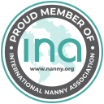Communication is the key to getting any job done right, and household tasks are no exception to that rule. Not only is it important for you to be able to communicate directly with your staff, but also for staff members to have a way to effectively communicate with each other. This helps staff members coordinate projects, avoid duplicating efforts, and work side-by-side in harmony.
Here are some of the best practices to implement in your home for effective communication among your executive household staff.
Staff Communication Methods
Many homeowners do not have a system in place for household staff members to communicate with each other in a formal or organized way. For example, the nanny may need to coordinate with the housekeeper to run errands and arrange play dates. Or the butler may need to coordinate with the private security guard to ensure that certain guests are allowed on the property. Meanwhile, the household personal assistant would likely need to coordinate with all staff members to work out a schedule based on the homeowners’ ever-changing plans.
In a busy household, it’s easy to forget verbal requests and reminders that are given while in the middle of a consuming task. This is why written communication, either in paper or digital form, is useful for keeping all staff members on track
The Increasing Role of Technology
Like everything else in our modern, digital world, technology is changing the way that executive household staff members communicate. The communication strategies that work in today’s office aren’t always relevant for domestic staff because these professionals likely aren’t sitting in front of a computer all day.
However, one technological solution to consider is a shared calendar app for all your employees to use. You may want to equip each of your staff members with an app-ready mobile phone so that they receive notifications and alerts about daily tasks and coordinated efforts. Some shared calendar apps to look into include, Week Calendar, UpTo, and Kalendi.
Organizational apps like Cozi, Wunderlist, and Hub may also help to keep your family and your staff informed about important events and deadlines so that everyone can coordinate accordingly. Depending on the roles of your executive household staff, you may also want to use a web-based platform and app solutions to keep track of time, files, emergency contact information, and use video conferencing. For example, HoursTracker serves as a timesheet and time tracker, Dropbox can store files that can be accessed from multiple devices, and Baby Timer helps to keep track of baby-related tasks throughout the day for nannies.
But despite all of these exciting and high-tech developments, nothing can replace the role of face-to-face communication and coordination in the home. Make sure that your staff members obtain adequate training on how to use relevant apps, and reinforce the point that household apps are meant to increase productive, not provide unwanted distractions. A combination of old-fashioned communication strategies and tech-savvy solutions works well in many American households today.
Domestic Staffing Tips for Better Communications
If you are looking to hire new or train existing household staff members for your home, contact Pavillion, the most trusted name in household staffing for domestic staffing tips. We specialize in identifying and securing the very best candidates available for the most discerning homes in the America, and we are here to help you every step of the way.
We offer consulting services to our clients to evaluate current staffing arrangements and make suggestions for improvements. Many times, these improvements address communication shortfalls, training needs, technology upgrades, or strategy shifts. Pavillion’s talented team of staffing experts are standing by and ready to help you overcome your staffing communication concerns for a more productive, efficient, and happy household.




